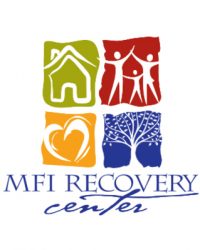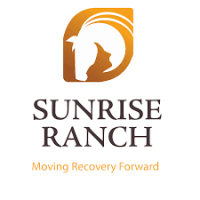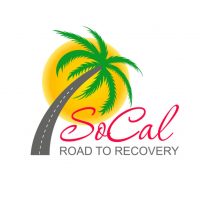Pacific Grove Hospital
Drug Rehab Center in Riverside, California
Pacific Grove Hospital is a 68-bed addiction treatment facility located in Riverside, CA that offers a range of treatment options, including detoxification, individual counseling, dual-diagnosis treatment, and intensive outpatient programs, and is accredited by JCAHO, NAATP, and SAMHSA. It additionally accepts most private health insurance plans and provides a supportive environment for those in recovery.
About Pacific Grove Hospital in California
Pacific Grove Hospital in Riverside, California is a reputable drug treatment center that specializes in providing comprehensive care for individuals suffering from drug addiction, alcoholism, opioid addiction, substance abuse, and dual diagnosis. The facility is accredited by prestigious organizations such as JCAHO (Joint Commission on Accreditation of Healthcare Organizations), NAATP (National Association of Addiction Treatment Providers), and SAMHSA (Substance Abuse and Mental Health Services Administration), ensuring high-quality standards of treatment. With a capacity of 68 beds, Pacific Grove Hospital offers a range of levels of care, including detoxification, dual-diagnosis treatment, intensive outpatient programs, inpatient programs, and partial-hospitalization programs. This facility is committed to helping individuals overcome addiction and achieve lasting recovery.
Pacific Grove Hospital in Riverside, California provides a comprehensive array of services to address addiction and substance abuse issues. Their services include detoxification, which supports individuals in safely withdrawing from substances under medical supervision. They also offer dual-diagnosis treatment, addressing both addiction and mental health disorders simultaneously to promote holistic healing. Pacific Grove Hospital provides intensive outpatient programs, allowing individuals to receive intensive therapy while maintaining their daily routine. Additionally, they offer inpatient programs where individuals can receive 24/7 care and support in a structured environment. Partial-hospitalization programs are also available, offering a step-down level of care with continued therapy and support. Through these various services, Pacific Grove Hospital aims to help individuals break free from addiction and regain control of their lives.
Genders
Ages
Modality
Additional
Accreditations
SAMHSA
NAATP

JCAHO
Conditions and Issues Treated
A combination of treatments is often needed to treat drug abuse. Some addictions can be treated with counseling and support groups. In other cases, drug abuse can lead to a medical problem and require medical treatment. Treatment for drug addiction typically combines counseling and psychotherapy with medication and behavioral therapies.
A combination of treatments is often needed to treat drug abuse issues effectively. In the case of drug abuse, there is no easy answer or one-size-fits-all cure.
Opioid addiction has become a significant health problem in the United States. In 2015, there were 91 opioid overdose-related deaths per day, with a substantial increase in mortality rate in 2014.
When opioid addiction has reached a point where a person’s life becomes unmanageable, treatment options are available to help them get sober. Treatment that includes medical care with medications and counseling can help a user transition into sobriety.
When someone in struggles with both addiction and mental or emotional illness, this is considered a dual diagnosis. Dual diagnosis treatment can include therapy for these issues to happen simultaneously, which will allow either of them to be treated effectively.
Sometimes people who have suffered from addiction disorder also suffer from co-occurring disorders such as depression, anxiety, bipolar disorder, etc., making them “dual diagnoses.” Dual diagnoses require specialized treatment programs where drug and alcohol addiction are addressed along with psychiatric illnesses. Some rehabilitation facilities provide patients suffering from cooccurrences a program with highly integrated services and a clean environment with few distractions to help them succeed.
Levels of Care Offered
This center offers a variety of custom treatment tailored to individual recovery. Currently available are Detox, Dual-Diagnosis, Inpatient, Intensive Outpatient, Partial-Hospitalization, with additional therapies available as listed below.
One of the first things an addict should do when entering treatment is to abstain from using illicit drugs completely. Depending on the length of time that the person has been using, the addict may have to go through alcohol or drug withdrawal. Fortunately, detox doesn’t have to be done alone, and withdrawal symptoms can be managed medically in an inpatient or outpatient setting. While detox may be uncomfortable, it is not life-threatening. Detoxification allows the addict to rid the body of all traces of drugs or alcohol and gives the addict a clean slate for their recovery.
Inpatient treatment for alcoholism or drug addiction is an option that provides the addict with a supportive environment in which they can stop using. After detox, an inpatient treatment center provides a structured environment for the addict to recover from their addiction and begin taking steps toward a lifetime of sobriety.
This type of treatment is appropriate for addicts that are most in need of intensive care and supervision. This includes those who were unable to quit on their own, those who need more structure than they can get in outpatient treatment, and those whose addiction has led them into legal trouble or severe health problems.
The Intensive Outpatient Program offered by Pacific Grove Hospital is designed for those who need intensive care but would rather get it in the comfort of their own home. The treatment programs vary in duration and intensity and can be tailored to suit the patient’s needs. The program includes regular visits to the facility, though the overnight stay is not needed. IOP is suitable for patients who have been treated in residential treatment programs and are in the transition phase. It helps the patient live at home and discharge some work or school responsibilities even while undergoing treatment. The patients gradually get back to their routine life with the support of a friend or family member.
Partial hospitalization programs offer another level of addiction treatment at Pacific Grove Hospital.
Therapies & Programs
Because no single treatment is effective for all addicts, the goal of treatment and therapy should be to figure out what works best for each individual. Tolerance and withdrawal levels differ from person to person, affecting the treatment intensity required. Addiction treatment should aim to help addicts develop healthy coping mechanisms for dealing with their addiction and its underlying causes.
Family therapy is beneficial for people who are in addiction treatment services because it offers addicts the opportunity to work with their family members to better understand what led them to make choices that contributed to their addiction.
This type of therapy helps family members reach a deeper understanding of how they can best support their loved one during recovery. It also helps the addict better understand their own motivations and triggers that led them to turn to substance abuse.
Family therapy can help addicts in the following ways:
- Assists family members in processing difficult feelings so they don’t blame or resent recovering addicts
- Assists family members in understanding how addiction has impacted the addict and everyone who is involved with them
- Allows the addict to take responsibility for their actions, while encouraging improved communication skills
- Helps family members understand how to best support an individual in recovery so addicts don’t relapse again.
Group therapy can help build a stronger support system and give addicts in Riverside, CA insight into their addiction that they gain through shared conversations. Group therapy occurs in a controlled group environment, exclusive of one on one meetings. This makes it safer for patients to feel comfortable sharing the struggles they’re going through and gaining perspective.
Trauma therapy is beneficial for people who are recovering from drug addiction because it helps them heal from past traumas that may have caused them to turn to harmful substances or led them to experience negative emotions that contributed to their destructive behaviors.
This type of treatment works by processing difficult experiences so individuals can learn how to process these events without having to turn to substances for coping.
Trauma therapy can help addicts in the following ways:
- Helps individuals understand their experiences and emotional responses to difficult events, including why they turned to drugs or alcohol
- Provides them with comfort and support while working through difficult emotions related to these traumatic experiences
- Offers an opportunity for addicts to have a voice and be heard, which can improve their self-esteem
- Can help them develop coping skills so they can better respond to triggers instead of turning to substance abuse.
Dialectical Behavior Therapy (DBT) is a cognitive-behavioral therapy that helps patients understand the relationship between their thoughts, feelings, and behaviors. It is beneficial for those whose addictions and behaviors stem from severe mental health issues. The term “Dialectic” means the integration of opposites. In substance abuse, DBT refers to accepting the patient’s addiction and working to change their thoughts and behavior. It improves life skills such as controlling intense emotions without reacting impulsively, resolving interpersonal conflicts effectively, and promoting awareness about self and others.
Cognitive-behavioral therapy is a technique that is used to help people with addiction. Specifically, it is a way of identifying thoughts and behaviors that cause the addiction. It is typically used in an individual counseling session.
The content explains cognitive behavioral therapy and how it works to address some behaviors that may be leading to unintended consequences in their life, as well as its benefits for those seeking sobriety.
It works by helping people to talk through their issues and addressing the thoughts that cause said behaviors. It is an excellent way of learning about oneself and one’s perception of the world.
Eye Movement Desensitization and Reprocessing (EMDR) helps people get sober by changing how they experience emotions. EMDR is a psychotherapy treatment that has been widely studied with people who have addiction problems.
During the treatment, the patient is asked to recall specific memories that relate to their addictions. At the same time, they follow a moving object with their eyes or tap their hands or feet. This process helps the patient work through their emotions by separating the memory from the distress they feel about it.
By enhancing the brain’s information processing systems, EMDR enables people to “process” experiences that trigger cravings and painful emotions so that they can move forward in their lives.
Life Skills Services assist addicts in their recovery by teaching them healthy coping mechanisms that will aid them in becoming sober, focussing on helping people enter into, and maintaining long-term sobriety. Drug Treatment Centers provide Life Skills Services at varying levels of intensity, specific to the needs and requirements of each patient.
The benefits of Life Skills Services offered at Pacific Grove Hospital:
- Restores hope and empowerment — Helps addicts believe that recovery is possible and instills a new confidence in their ability to achieve a positive, drug-free future
- Enhances family involvement — Encourages families to get involved in the recovery process and supports their understanding and encouragement of healthy behavior.
- Increases patient’s compliance — Helps patients take responsibility for and ownership of their recovery and encourages continued progress
- Reduces relapse rates — Encourages long-term abstinence and emphasizes the importance of establishing sober support systems.
The 12-step program is a common method used to treat addiction. It is successful for many people and includes acknowledging the problem, making changes, and honesty. The program is available in most cities in the United States and helps those addicted to drugs or alcohol achieve sobriety. In this program, peers help each other achieve the goal of abstinence.
The 12 steps dictate that individuals accept that they are addicts and understand the consequences of their addiction. They then work towards recovery and make amends to others they have hurt. The process of cognitive restructuring helps individuals change their negative thoughts into positive ones. The 12-step program provides the benefit of building a support network, which is essential for recovery.
Patient Experience
Creative Arts
Creative arts therapy, known as expressive therapy, may be used as a means of treatment. Acting and music are among the various forms used to express oneself where written words would fail through poetry or song. The goal is to find a balance by integrating thoughts and feelings to improve the mental state of patients in Riverside, California.Experiential Therapy at Pacific Grove Hospital
Experiential therapy uses engaging activities to help patients access deeper, often hidden emotions. For example, the patient could role-play a problematic situation or engage in activities like drawing, painting, poetry writing, music composition, exercising, or journaling to help process intense feelings.
Experiential therapy is a type of therapeutic approach that focuses on having patients work through problems, issues, or emotions by engaging directly in some real experience. Experiential therapy occurs face-to-face with a therapist who helps these people to explore their feelings first hand.
It is based on the belief that to truly understand and gain insight into oneself and behavior; it is necessary and helpful to have real experiences with the issues involved. Some therapists have developed the experiential therapy approach as a way of treating addictive behaviors or dealing with impulses related to addiction. It comes from an existential school of psychotherapy called ‘experiential existential.’
Payment Options Accepted
For specific insurance or payment methods please contact us.
Is your insurance accepted?
Ask an expert, call (888) 674-0062
Additional Details
Specifics, location, and helpful extra information.
Riverside, California 92506 Phone Number(951) 330-3649 Meta DetailsUpdated November 25, 2023
Staff Verified
Pacific Grove Hospital Patient Reviews
There are no reviews yet. Be the first one to write one.
Riverside, California Addiction Information
More than 3 million of California's citizens are addicted to illegal drugs. Almost 800,000 people use hard drugs, almost 5 million use marijuana, and another 2.1 million abuse alcohol every year. Other substance abuse issues such as binge drinking and teen drug use are also common. Many illegal drugs such as cocaine, heroin, methamphetamine, and marijuana are smuggled into the state from Mexico.
In 2015, there were 5,287 reported cases of drug abuse in Riverside County. Of those cases, 2,992 were for marijuana, 1,023 were for methamphetamine, and 547 were for heroin. The most commonly abused drugs in Riverside are methamphetamine, heroin, and cocaine. Riverside, California, is a great place to get sober. There are many alcohol and drug rehabs. Getting sober here is worth considering if you're looking for a fresh start.
Treatment in Nearby Cities
- Fullerton, CA (31.0 mi.)
- Garden Grove, CA (33.8 mi.)
- Hanford, CA (207.3 mi.)
- Ramona, CA (70.3 mi.)
- Chatsworth, CA (72.6 mi.)
Centers near Pacific Grove Hospital
The facility name, logo and brand are the property and registered trademarks of Pacific Grove Hospital, and are being used for identification and informational purposes only. Use of these names, logos and brands shall not imply endorsement. RehabNow.org is not affiliated with or sponsored by Pacific Grove Hospital.










